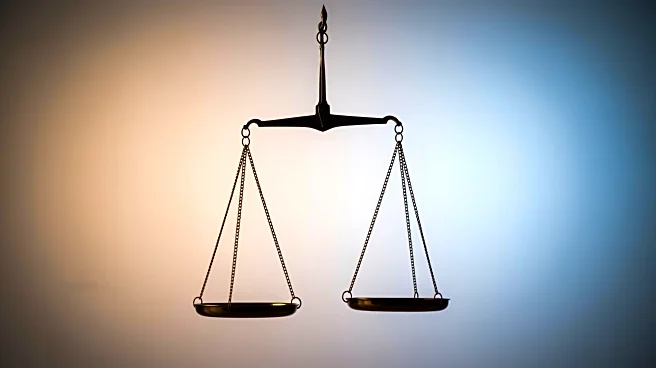What's Happening?
Mahmoud Khalil appeared in a federal appeals court in Philadelphia as he challenges a deportation case initiated by President Trump's administration. Khalil, a legal U.S. resident married to an American citizen, has been involved in pro-Palestinian activism
at Columbia University. The government seeks to overturn a lower court's decision that granted Khalil's release from a Louisiana immigration jail. Khalil's attorneys argue that the district court's ruling should be upheld, preventing federal authorities from detaining him again. The government contends that the case should be handled by an immigration judge in Louisiana. Khalil, who has been permitted to travel for rallies, emphasizes the case's significance for freedom of speech and dissent in the U.S.
Why It's Important?
The case highlights ongoing tensions between immigration enforcement and civil liberties, particularly concerning activism related to Middle Eastern issues. Khalil's situation underscores the broader debate over the rights of legal residents and activists in the U.S., especially those involved in politically sensitive topics. The Trump administration's efforts to deport individuals associated with pro-Palestinian protests raise questions about the balance between national security and freedom of expression. The outcome of this case could set a precedent for how similar cases are handled, impacting activists and legal residents advocating for contentious issues.
What's Next?
The appeals court's decision will determine whether Khalil can remain free or face deportation proceedings. If the government succeeds in overturning the lower court's ruling, Khalil may be detained again, potentially affecting his ability to continue his activism. The case may prompt further legal challenges and public discourse on the rights of activists and legal residents in the U.S. The broader implications for immigration policy and civil liberties could lead to increased scrutiny and potential legislative action.















